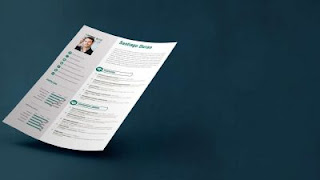1) Have a strategy, make a plan
Why do you want to write for a journal? What is your purpose? Are you writing for research assessment? Or to make a difference? Are you writing to have an impact factor or to have an impact? Do you want to develop a profile in a specific area? Will this determine which journals you write for? Have you taken their impact factors into account?
Have you researched other researchers in your field – where have they published recently? Which group or conversation can you see yourself joining? Some people write the paper first and then look for a 'home' for it, but since everything in your article – content, focus, structure, style – will be shaped for a specific journal, save yourself time by deciding on your target journal and work out how to write in a way that suits that journal.
Having a writing strategy means making sure you have both external drivers – such as scoring points in research assessment or climbing the promotion ladder – and internal drivers – which means working out why writing for academic journals matters to you. This will help you maintain the motivation you'll need to write and publish over the long term. Since the time between submission and publication can be up to two years (though in some fields it's much less) you need to be clear about your motivation.
2) Analyse writing in journals in your field
Take a couple of journals in your field that you will target now or soon. Scan all the abstracts over the past few issues. Analyse them: look closely at all first and last sentences. The first sentence (usually) gives the rationale for the research, and the last asserts a 'contribution to knowledge'. But the word 'contribution' may not be there – it's associated with the doctorate. So which words are used? What constitutes new knowledge in this journal at this time? How can you construct a similar form of contribution from the work you did? What two sentences will you write to start and end your abstract for that journal?
Scan other sections of the articles: how are they structured? What are the components of the argument? Highlight all the topic sentences – the first sentences of every paragraph – to show the stages in the argument. Can you see an emerging taxonomy of writing genres in this journal? Can you define the different types of paper, different structures and decide which one will work best in your paper? Select two types of paper: one that's the type of paper you can use as a model for yours, and one that you can cite in your paper, thereby joining the research conversation that is ongoing in that journal.
3) Do an outline and just write
Which type of writer are you: do you always do an outline before you write, or do you just dive in and start writing? Or do you do a bit of both? Both outlining and just writing are useful, and it is therefore a good idea to use both. However, make your outline very detailed: outline the main sections and calibrate these with your target journal.
What types of headings are normally used there? How long are the sections usually? Set word limits for your sections, sub-sections and, if need be, for sub-sub-sections. This involves deciding about content that you want to include, so it may take time, and feedback would help at this stage.
When you sit down to write, what exactly are you doing:using writing to develop your ideas or writing to document your work? Are you using your outline as an agenda for writing sections of your article? Define your writing task by thinking about verbs – they define purpose: to summarise, overview, critique, define, introduce, conclude etc.
4) Get feedback from start to finish
Even at the earliest stages, discuss your idea for a paper with four or five people, get feedback on your draft abstract. It will only take them a couple of minutes to read it and respond. Do multiple revisions before you submit your article to the journal.
5) Set specific writing goals and sub-goals
Making your writing goals specific means defining the content, verb and word length for the section. This means not having a writing goal like, 'I plan to have this article written by the end of the year' but 'My next writing goal is to summarise and critique twelve articles for the literature review section in 800 words on Tuesday between 9am and 10.30'. Some people see this as too mechanical for academic writing, but it is a way of forcing yourself to make decisions about content, sequence and proportion for your article.
6) Write with others
While most people see writing as a solitary activity, communal writing – writing with others who are writing – can help to develop confidence, fluency and focus. It can help you develop the discipline of regular writing. Doing your academic writing in groups or at writing retreats are ways of working on your own writing, but – if you unplug from email, internet and all other devices – also developing the concentration needed for regular, high-level academic writing.
At some point – ideally at regular intervals – you can get a lot more done if you just focus on writing. If this seems like common sense, it isn't common practice. Most people do several things at once, but this won't always work for regular journal article writing. At some point, it pays to privilege writing over all other tasks, for a defined period, such as 90 minutes, which is long enough to get something done on your paper, but not so long that it's impossible to find the time.
7) Do a warm up before you write
While you are deciding what you want to write about, an initial warm up that works is to write for five minutes, in sentences, in answer to the question: 'What writing for publication have you done [or the closest thing to it], and what do you want to do in the long, medium and short term?'
Once you have started writing your article, use a variation on this question as a warm up – what writing for this project have you done, and what do you want to do in the long, medium and short term? Top tip: end each session of writing with a 'writing instruction' for yourself to use in your next session, for example, 'on Monday from 9 to 10am, I will draft the conclusion section in 500 words'.
As discussed, if there are no numbers, there are no goals. Goals that work need to be specific, and you need to monitor the extent to which you achieve them. This is how you learn to set realistic targets.
8) Analyse reviewers' feedback on your submission
What exactly are they asking you to do? Work out whether they want you to add or cut something. How much? Where? Write out a list of revision actions. When you resubmit your article include this in your report to the journal, specifying how you have responded to the reviewers' feedback. If your article was rejected, it is still useful to analyse feedback, work out why and revise it for somewhere else.
Most feedback will help you improve your paper and, perhaps, your journal article writing, but sometimes it may seem overheated, personalised or even vindictive. Some of it may even seem unprofessional. Discuss reviewers' feedback – see what others think of it. You may find that other people – even eminent researchers – still get rejections and negative reviews; any non-rejection is a cause for celebration. Revise and resubmit as soon as you can.
9) Be persistent, thick-skinned and resilient
These are qualities that you may develop over time – or you may already have them. It may be easier to develop them in discussion with others who are writing for journals.
10) Take care of yourself
Writing for academic journals is highly competitive. It can be extremely stressful. Even making time to write can be stressful. And there are health risks in sitting for long periods, so try not to sit writing for more than an hour at a time. Finally, be sure to celebrate thoroughly when your article is accepted. Remind yourself that writing for academic journals is what you want to do – that your writing will make a difference in some way.
Culled from The Guardian

















